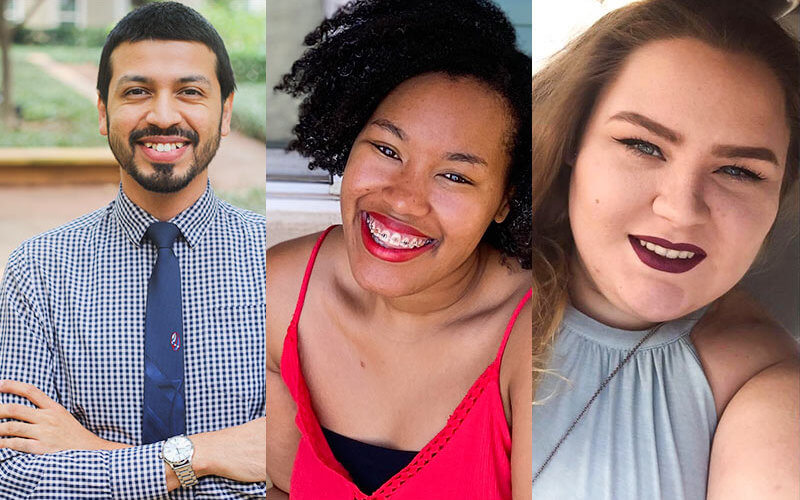
“We who believe in freedom cannot rest … until the killing of Black men … is as important as the killing of white men … ”
Cal State Fullerton music major Ayanna Delk Lewis recalls feeling empty and alone watching “murder after murder” of Black lives last year — from Ahmaud Arbery and Breonna Taylor to George Floyd and others. Social distancing due to the COVID-19 pandemic didn’t help.
But an “outpouring of love and support from my friends and teachers made it bearable,” Lewis shared, and a video project with the University Singers gave her hope.
During a Zoom check-in meeting in June, the music students expressed their anger, frustration and fears over systemic racism and the negative treatment of Black people and other minorities in communities across the nation. The conversation spurred an idea to use song to address these issues: The students recorded a virtual performance of Bernice Johnson Reagan’s “Ella’s Song.”
“Everyone in University Singers agreed we had to use our voices to help stand up for the injustices faced by Black people in our society,” said Lewis, one of the soloists in the video. “It’s a common belief that police brutality all of a sudden became a thing in 2014, but it is a concept that is as old as America. Social media has just given us a medium to see how truly widespread this is.”
The lyrics, which originated from African American civil rights activist Ella Baker’s 1964 Hattiesburg Freedom Day Rally speech, resonated deeply with Lewis.
“This project was a reminder during a very dark time that my peers in my classes see the injustice that befalls people who look like me, that they care and are willing to fight for a better future,” Lewis said. “We cannot eradicate injustice without allies.”
Graduate student Kibsaim Escarcega, who is studying choral conducting, served as the project’s artistic director.
“I wanted to be part of something greater than myself, to come together with others and to make a stand for equality, reject prejudice and call for unity,” explained Escarcega.
“The CSUF University Singers proudly consists of a diverse group of individuals, representing different races, nationalities, ethnicities and faiths,” he continued. “Although I cannot begin to fully comprehend the struggle Black Americans have endured for more than four centuries, I know what it feels like to be treated differently because of the color of my skin and Hispanic background.”
But music, he said, has the power to transcend those differences. “Singing in a choir has always been an oasis for me: It’s where I have always felt truly free to be myself.”
Adena Bentley, the second soloist in the project, is majoring in music with an emphasis in music education.
“My main motivation for becoming a teacher is to be able to teach culture and empathy through music,” she shared.
“Systemic oppression is not a partisan issue. It is a flaw in our system that needs to be addressed with caring conversation at every level,” said Bentley. “Change begins with expanded world views and higher standards which we choose to hold ourselves and our government to.”
Bentley believes the project, like the song, is a call to action: “‘We who believe in freedom cannot rest … until it comes.’”